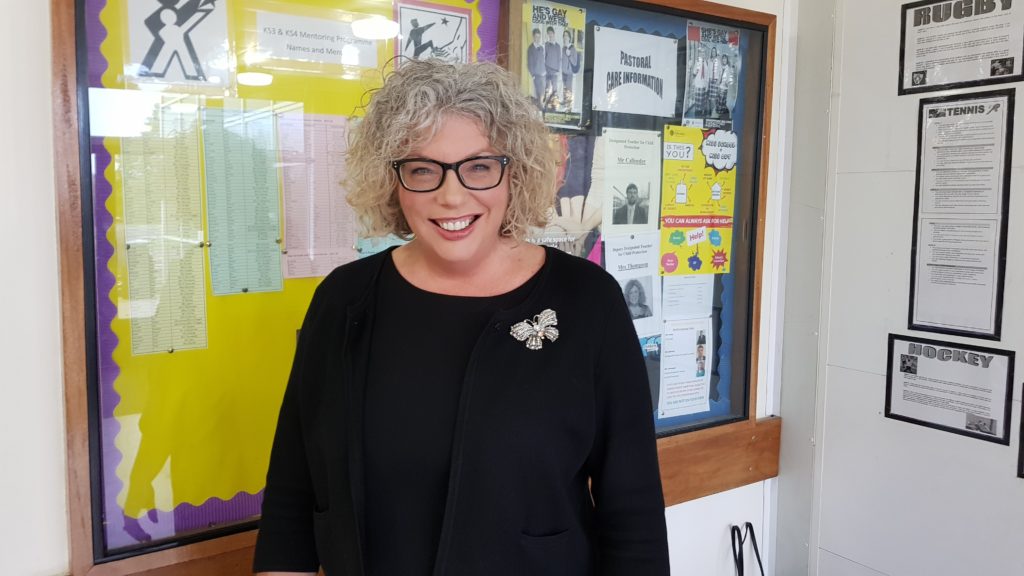Subject Info
Science at Brownlow Integrated College has a significant role to play within the Northern Ireland Curriculum and takes its place along with English and Maths as one of three compulsory subjects for all pupils in Brownlow Integrated College until the age of 16.
At KS3 and KS4 Pupils study Science which includes the following three disciplines:
Biology – the study of Living Things
Chemistry – the study of Matter, its properties and reactions
Physics – the study of How Stuff Works

Junior School Science
Year 8 and 9 pupils at Brownlow Integrated College receive 3 periods of Science per week. In year 10 pupils receive 4 periods of Science per week. Every pupil will be given a booklet of class resources and notes at the beginning of each term. A separate homework booklet is also given to pupils and contains relevant learning lists and KS3 exam questions associated with each topic.
“Science Pathways”, a science textbook written specifically for the Northern Ireland Curriculum, supports the pupil resources used.
Parents are encouraged to look through the resources provided and discuss the science topics covered with their child on a regular basis.
KS3 Topics
Year 8
Chemical Changes, Life, Body Systems and Cells,
Forces and Energy, Solids, Liquids and Gases,
Solutions and Separations, Acids and Alkalis,
Human Reproduction.
Year 9
The Universe – Earth in Space, Atoms and Elements,
Compounds and Mixtures, Electricity and Magnetism,
Food and Digestion, Respiration: Lungs and Blood,
Microbes and Disease.
Year 10
Patterns of Reactivity, Waves – Light and Sound,
Electromagnetic Spectrum, Sustainable Development,
Inheritance and Selection, Using Chemistry
KS3 Assessments
Years 8 – 10 will have 4 formal internal assessment periods as outlined on the School Calendar.
Assessments will usually take the form of a written class test or a research task/project work. Marking criteria will be provided for pupils if an assessment is to take the form of a research task.
Pupils will be informed in advance of the assessment format and this information will also be recorded in their homework diaries.
The final end of year assessment will formally assess the whole years work and will take the form of a longer written exam paper.
Pupils assessments will be stored in assessment folders and a target setting sheet will be completed at the end of each assessment period. Pupils will be asked to reflect of their individual performance and target set for improvement.
Senior School Science
At KS4 Pupils will study one of the following options:
Double Award Science
This is a unitised specification that includes seven units. Units 1 - 3 will be assessed in year 11 through a written examination. Each paper is worth 11% of final grade.
- B1: Biology: Cells, Living Processes and Biodiversit
- C1: Chemistry: Structures, Trends and Chemical Reactions, Quantitative Chemistry and Analysis
- P1: Physics: Force and Motion, Energy, Moments, Density, Kinetic Theory, Radioactivity, Nuclear Fission and Fusion
The remaining Biology, Chemistry and Physics units will be assessed at the end of year 12 through a written terminal examination. Each paper is worth 14% of final grade.
- B2: Biology: Body Systems, Genetics, Microorganisms and Health.
- C2: Chemistry: Further Chemical Reactions, Rates of Equilibrium, Calculations and Organic Chemistry
- P2: Physics: Waves,Light, Electricity, Magnetism, Electromagnetism and Space Physics
- Unit 7: Practical Skills Unit: Practical skills assessment and a written external examination. 25% of final grade.
Single Award Science
There are four assessment units. Each assessment unit is weighted at 25% and involves an external examination.
- Unit 1: Biology - Cells, Food and Diet, Chromosomes and Genes, Co-Ordination and Control, Reproductive System, Variation and Adaption, Disease and Body Defences, Ecological Relationships.
- Unit 2: Chemistry – Acids and Bases, Elements, Compounds and Mixtures, Atomic Structure and Periodic Table, Bonding, Materials, Symbols, Formulae and Equations, Qualitative Analysis, Metals and the Reactivity Series, Rates of Reaction, Organic Chemistry
- Unit 3: Physics – Electrical Circuits, Household Electricity, Energy, Electricity Generation, Heat transfer, Waves, Road transport and Safety,Radioactivity, Earth in Space.
- Unit 4: Practical Skills: Practical skills assessment and a written external examination.
Additional Assessments
In addition to external assessments and module examinations, formal internal assessment will take place during relevant KS4 assessment weeks as outlined on the School Calendar. Year 11 will have 4 formal internal assessments and year 12 will have 3 formal internal assessments.
Assessments will usually take the form of a written class test or a research task/project work. Marking criteria will be provided for pupils if an assessment is to take the form of a research task. Pupils will be informed in advance of the assessment format and this information will also be recorded in their homework diaries.
Pupils assessments will be stored in assessment folders and a target setting sheet will be completed at the end of each assessment period. Pupils will be asked to reflect of their individual performance and target set for improvement.
Module Dates
Year 11 SAS
Physics: 23rd Feb 2018
Year 11 DAS
Biology: 21st Feb 2018
Physics: 23rd Feb 2018
Chemistry: 17th May 2018
Year 12 SAS
Chemistry : 9th Nov 2017
Biology: TBC
Year 12 DAS
No module exams but repeats available – speak with Mrs Thompson
